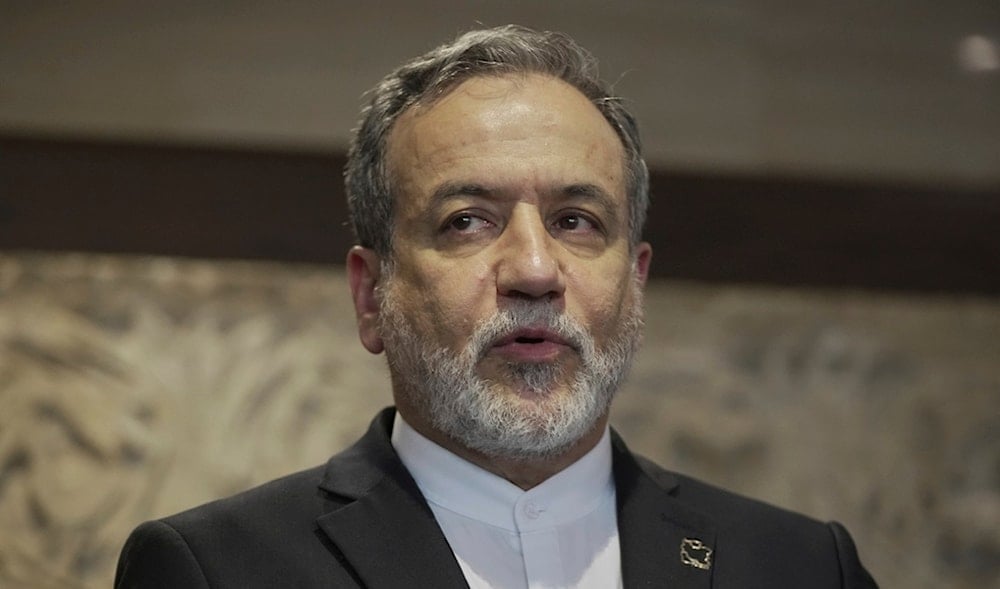Iran confirms targeting Haifa oil refinery, vows continued retaliation
Iranian FM Abbas Araqchi confirmed targeting the Haifa refinery in the second phase of Operation True Promise 3, vowing continued retaliation against “Israel” and accusing the US of complicity in the attacks.
-

Iranian Foreign Minister Abbas Araghchi speaks to journalists after a meeting with Lebanese Parliament Speaker Nabih Berri in Beirut, Lebanon, Tuesday, June 3, 2025. (AP)
Foreign Minister Abbas Araghchi announced that Iran targeted "Israel's" Haifa oil refinery on Saturday as it exacts the second phase of Operation True Promise 3.
In a meeting with foreign diplomats broadcast on state TV, Araghchi affirmed that Tehran will continue responding to the Israeli aggression, emphasizing Iran’s right to self-defense as legitimate under international law.
The top Iranian diplomat further explained that Iran’s retaliatory operations focused on key targets within the Israeli entity, particularly military sites, and stressed that Iran does "not wish to expand the war."
He reiterated that nuclear facilities represent a “red line” for Tehran, describing any attack on them as a serious violation. He urged the international community to condemn such acts.
US 'partner' in assaults on Iran
Araghchi also accused the United States of being an accomplice in the attacks on Iran, stating, “From our perspective, the US is a partner in these assaults and must bear responsibility.”
He added that Iran possesses evidence confirming that US bases in the region supported Israeli strikes on Iranian territory.
On the diplomatic front, Araqchi revealed that five rounds of indirect talks had taken place with the United States. “We were supposed to present our proposal in the sixth round,” he noted.
Omani Foreign Minister Badr Albusaidi confirmed Saturday that the anticipated sixth round of indirect nuclear negotiations between Iran and the United States will no longer proceed. The meeting, which had been scheduled for Sunday in Muscat, was officially called off, ending days of speculation.
Open complicity
The scale and coordination of the Israeli operation have drawn global attention, especially following public remarks by US President Donald Trump, who admitted to supporting the Israeli strikes.
In an interview with CNN, Trump said, "Of course" he backed the Israeli regime, describing the attack as "a very successful attack," and warned Tehran to resume negotiations. "Iran should have listened to me when I said — you know, I gave them, I don't know if you know, but I gave them a 60-day warning and today is day 61."
Iran's Foreign Minister and lead nuclear negotiator, Abbas Araghchi, responded with sharp criticism in a call with EU foreign policy chief Kaja Kallas. He said continuing indirect talks was "unjustifiable" under such conditions, especially after Trump's remarks, which "proved that Israel's hostile measures against Iran were the result of Washington's direct support for the regime."
Read more: At UNSC session, Iran accuses US of complicity in Israeli aggression

 3 Min Read
3 Min Read









